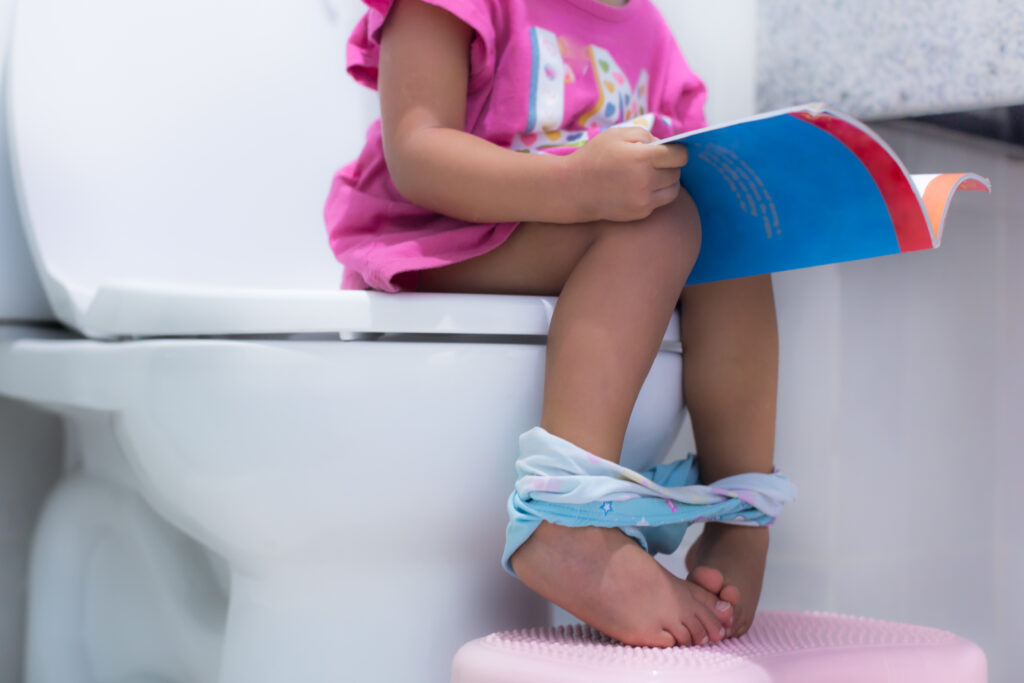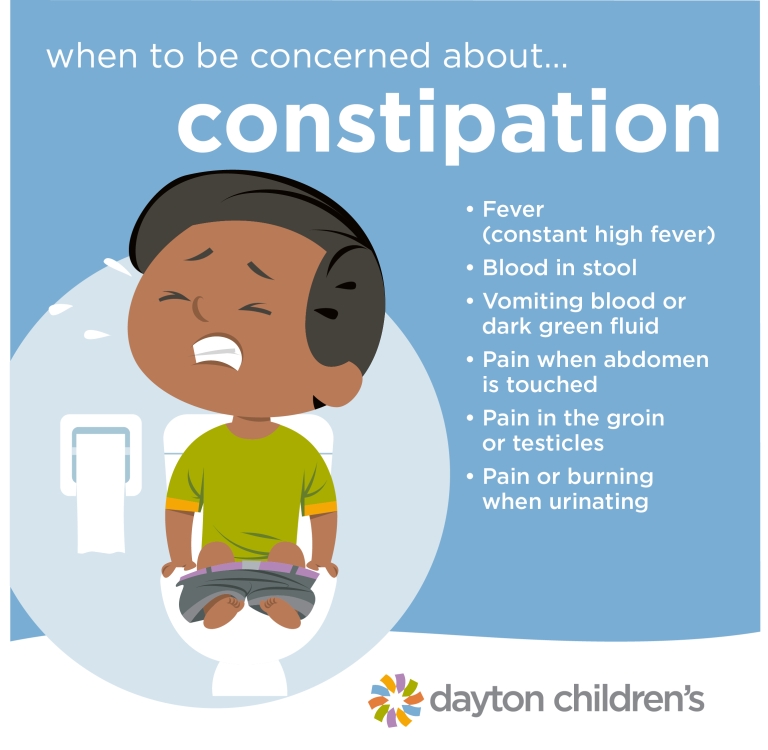when to be concerned about constipation

in this article:
- What are the common causes of constipation?
- What can I do to prevent and treat constipation at home?
- When should I seek medical attention for my child?
If your child isn’t pooping as often as they used to, or if they are experiencing pain while pooping, they might be constipated. Constipation can also cause hard poop that is difficult to push out. Believe it or not, constipation is very common in children of all ages. According to the American Academy of Pediatrics, 1 in every 20 visits to the pediatrician are related to constipation (up to 30% of kids may have constipation according to medical literature).
Since constipation is so common, it’s possible that most children will experience it at some point in their lifetime. To help us understand when constipation is a cause for concern and what to do to prevent it from happening, we asked pediatric gastroenterologist, Krishna Mutyala, MBBS, to share his advice.
poop withholding and what to do when kids won’t poop!
Many children have constipation at one time or another. Come along with Lucas as he explains why constipation is sometimes caused when kids withhold stool.
what are the common causes of constipation?
Constipation can happen for a variety of reasons. If your child is constipated, one of the following could be the cause:
- No regular habit of sitting on the toilet
- Low fiber diet
- Holding because of fear or pain
- Holding because they are busy playing
- Low fluid intake
- Too early toilet training and resisting it

what can I do to prevent and treat constipation at home?
- Encourage your child to eat five servings of fruits and veggies each day
- Incorporate high fiber foods in your child’s diet
- Limit dairy products
- Encourage your child to drink plenty of fluids
- Retrain your child’s body to have regular bowel movements
- Have your child sit on the toilet for five-to-ten minutes after meals
- Place a footstool under your child’s feet and have them lean forward slightly (commercial products like Squatty Potty are an option)
- Promote at least 30 minutes of physical activity each day
If your child is still struggling to make a regular bowel movement, you could consider giving them Miralax and/or a laxative. These medications can be used if your child is over one year of age. If you have questions about giving these medications to your child, call your primary care provider for guidance.
when should I seek medical attention for my child?
It is not always easy to decide when and where to take your child when they are sick or in pain. It’s always a good idea to contact your child’s primary care provider with any concerns you may have regarding your child’s illness or medical concerns. After all, your child’s primary care provider knows them best!
In rare cases, constipation can be caused by a larger physical problem. If your child is experiencing any of the following symptoms, call your primary care provider or consider an evaluation at urgent care or the emergency department if your primary care provider is not available:
- Fever (constant high fever)
- Blood in the stool
- Vomiting blood or dark green fluid – this may need an emergency department visit
- Swollen abdomen
- Pain when the abdomen is touched
- Pain in groin or testicles
- Pain or burning with urinating
Your child’s primary care provider will guide you on the next steps. If it is recommended that your child be seen by a specialist in gastroenterology, you can schedule an appointment online.
symptom checker
Check symptoms and dosage charts and get quick advice on what to do when your kids are sick.
here when you need us
Whether you’re looking for the right provider, ready to make an appointment, or need care right now—we’re here to help you take the next step with confidence.




